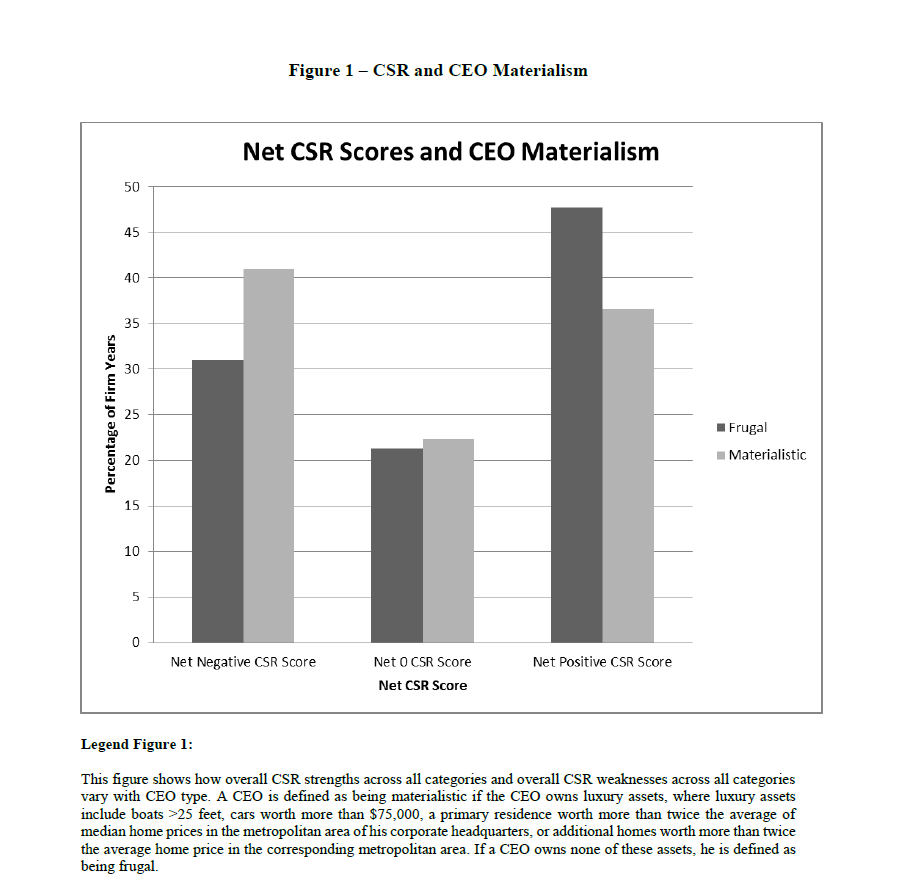CEO Materialism and Corporate Social Responsibility
Chicago Booth Research Paper No. 16-11
Fama-Miller Working Paper Forthcoming
Abstract
We study the role of individual CEOs in explaining corporate social responsibility (CSR) scores.
We show that CEO fixed-effects explain 63% of the variation in CSR scores, a significant portion of which is attributable to a CEO’s “materialism” (relatively high luxury asset ownership). Specifically, firms led by materialistic CEOs have lower CSR scores, and increases in CEOs’ materialism are associated with declining scores. Finally, CSR scores in firms with non-materialistic CEOs are positively associated with accounting profitability. In contrast, CSR scores in firms with materialistic CEOs are unrelated to profitability on average; however this association is decreasing in CEO power.

Fortune Global 500 firms spend over $15 billion a year on corporate philanthropy and countless hours and dollars on a host of social responsibility (CSR) activities. As such, a growing academic literature on CSR has developed over the last 15 years. Despite the literature on this topic, there is still ambiguity regarding the precise definition of CSR. The most widely accepted notion of CSR is offered by Carroll (1979) who identifies four components that need to be present in order for a business to claim it is socially responsible. These are economic, legal, ethical and discretionary responsibilities. The latter (discretionary) set of responsibilities are “purely voluntary”, and can be thought of as exceeding the requirements of the law. Mosley, Pietri and Megginson (1996) states that “corporate social responsibility refers to managements’ obligation to set policies, make decisions and follow courses of action beyond the requirements of the law that are desirable in terms of the values and objectives of society”. Further, the ethical component of CSR proposed in the literature implies that morals or values of individual managers are an important factor in a firm’s CSR practices (Jones 1995).
This aspect of CSR brings into focus the point that key individuals may be instrumental in formulating and implementing firms’ CSR policy. This raises the question of the importance of individuals’ values, traits and motives in pursuing CSR.
The literature on CSR, however, does not examine the role of individual executives in shaping CSR strategies and investments in their firms. We take a first step (that we are aware) in this direction, and examine how CEO behavior outside the workplace, as measured by their materialism (relative ownership of luxury goods) is related to their firms’ CSR performance.
Here is the link to read the full report.

